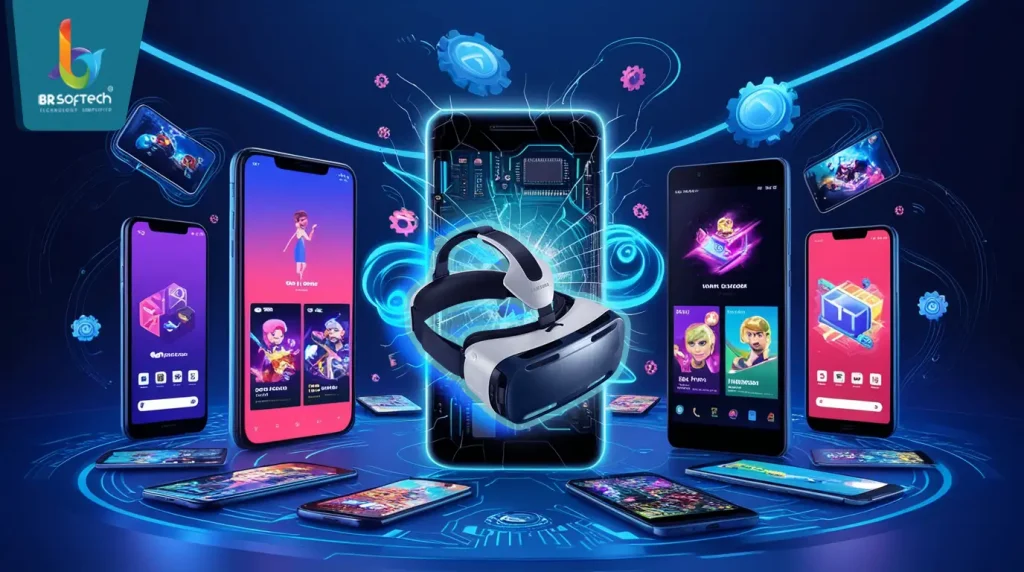Admin
I am the admin of BR Softech PVT LTD - an Award-winning Mobile game development company. My thesis is to work with hard-bit and get the best Exposure. I have driven by the spirit of entrepreneurship and dream to build a billion-dollar-company.

Mobile gaming has grown far beyond a simple hobby, becoming a massive industry that pulls in billions of dollars and captivates millions of players globally. Quick puzzles and expansive virtual worlds alike are redefining how people enjoy entertainment and connect with technology.
These games have become a driving force in reshaping our digital interactions, evolving from simple pastimes into influential platforms. With better tools and rising player demands, developers are pushing boundaries to create captivating experiences that stand out in the fast-changing gaming industry.
Recent studies show that the global mobile gaming market is projected to reach $665.77 billion by 2030, fueled by increasing smartphone adoption and improved internet access. As developers strive to meet growing demands, several emerging trends are shaping the future of mobile gaming.
Hyper-casual games are dominating app stores and grabbing the attention of millions. These games are characterized by their simplicity, minimalistic design, and addictive gameplay. Players enjoy the instant gratification they offer, often with no steep learning curve or complex mechanics.
Developers are finding success by creating games that can be played in short bursts, making them perfect for commuting or downtime. Their lightweight design also ensures smooth performance across devices, making them accessible to a broader audience. As a result, hyper-casual games are likely to remain a major player in the mobile gaming space.
Blockchain gaming is reshaping mobile experiences with secure, transparent systems that protect in-game transactions. It opens new revenue opportunities for developers by enabling features like asset ownership, decentralized economies, and play-to-earn models, where players earn digital assets through gameplay.
With the ability to trade items or currency securely, blockchain ensures a fraud-free environment. As this technology gains traction, its influence on mobile gaming will continue to expand.
Esports is no longer confined to PCs and consoles. Mobile games are becoming a vital part of the competitive gaming world, with titles like PUBG Mobile and Call of Duty: Mobile leading the charge. Professional tournaments now draw millions of viewers, showcasing the potential of mobile games in the esports arena.
Developers are creating games optimized for competitive play, focusing on smooth controls, balanced gameplay, and engaging visuals. As esports continues to grow, mobile gaming is carving out its niche, offering players and fans exciting new opportunities.
Fantasy sports games have gained immense popularity by blending real-world events with interactive gaming. These apps let users draft virtual teams based on actual players and compete based on real-life performances. Machine learning and AI are enhancing these games, offering personalized recommendations and predictive analytics to improve the user experience.
With advancements in AI, fantasy sports apps on mobile are becoming more intuitive and engaging. Developers are expected to push boundaries further, integrating smarter algorithms and real-time updates to captivate users.
Robust infrastructure is essential for any successful mobile game. Hosting solutions play a crucial role in ensuring games perform smoothly and scale seamlessly as user bases grow. But what about managing communication efficiently—can developers rely on platforms that support email protocols with IMAP and POP3 to streamline workflows?
Platforms like One.com offer affordable hosting services, providing developers with reliable tools to focus on creativity rather than technical challenges.
Additionally, a strong online presence is vital. Securing a unique domain name helps developers establish credibility and protect their brand. This simple step builds trust with players and lays the groundwork for long-term success.